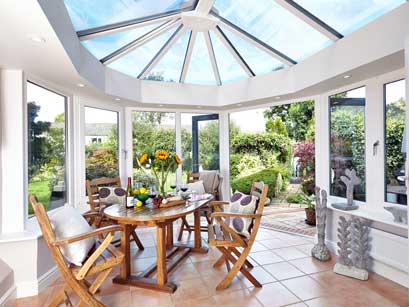Contact Us
Before getting in touch, please check our quick links to the most commonly asked questions.
How long does double glazing last?
On average, double-glazing windows can last between 20- 25 years, with many lasting even longer. The lifespan of double glazing can be extended with proper care and maintenance, such as cleaning the frames and glass regularly and checking for any signs of wear and tear. Look for companies with long guarantees such as Thomas Hynes, as this can be a good sign of the expected lifespan.
How much does double glazing cost?
The cost of double glazing can vary depending on several factors, such as the size and type of the window, the material of the frame, the type of glass used and the installation costs. As a general guideline, the cost of double glazing for a standard-sized window can range from a few hundred to a few thousand pounds, depending on the above factors. But it’s important to note that the cost can be higher for larger or more complex windows, or for windows made from premium materials.
Is triple glazing better than double glazing?
Triple glazing is generally more efficient at reducing heat loss than double glazing, but it may not always be necessary or cost-effective. The exact energy savings achieved by triple glazing will depend on a variety of factors such as the climate, the orientation of the windows, the building’s insulation, and the efficiency of the heating and cooling systems in your home.
What does double glazing do?
Double glazing is a type of window that consists of two panes of glass with a small gap between them. The gap is filled with air or an insulating gas like argon. The two panes of glass act as a barrier to reduce the amount of heat that is transferred through the window. This provides increased insulation, which can help to reduce heat loss from your home and improve energy efficiency.
How does double glazing reduce heat loss?
Double glazing reduces heat loss through the window by creating a barrier that slows down the transfer of heat. Heat can transfer through a window in several ways, including conduction, convection, and radiation. The two panes of glass and the air gap between them work together to reduce the amount of heat that is transferred through the window. This means double glazing helps to keep your home warmer in the winter and cooler in the summer, which can result in lower energy bills and increased comfort.
Advice and Information

Inspiration area
Product information and advice to spark creativity in your home.

Product buying guides
Your personal handbook to buying new windows, doors and conservatories.

Product care
Diagnose common concerns with an existing installation.
For any Press Office enquiries, please email admin@thomashynesdoubleglazing.co.uk
